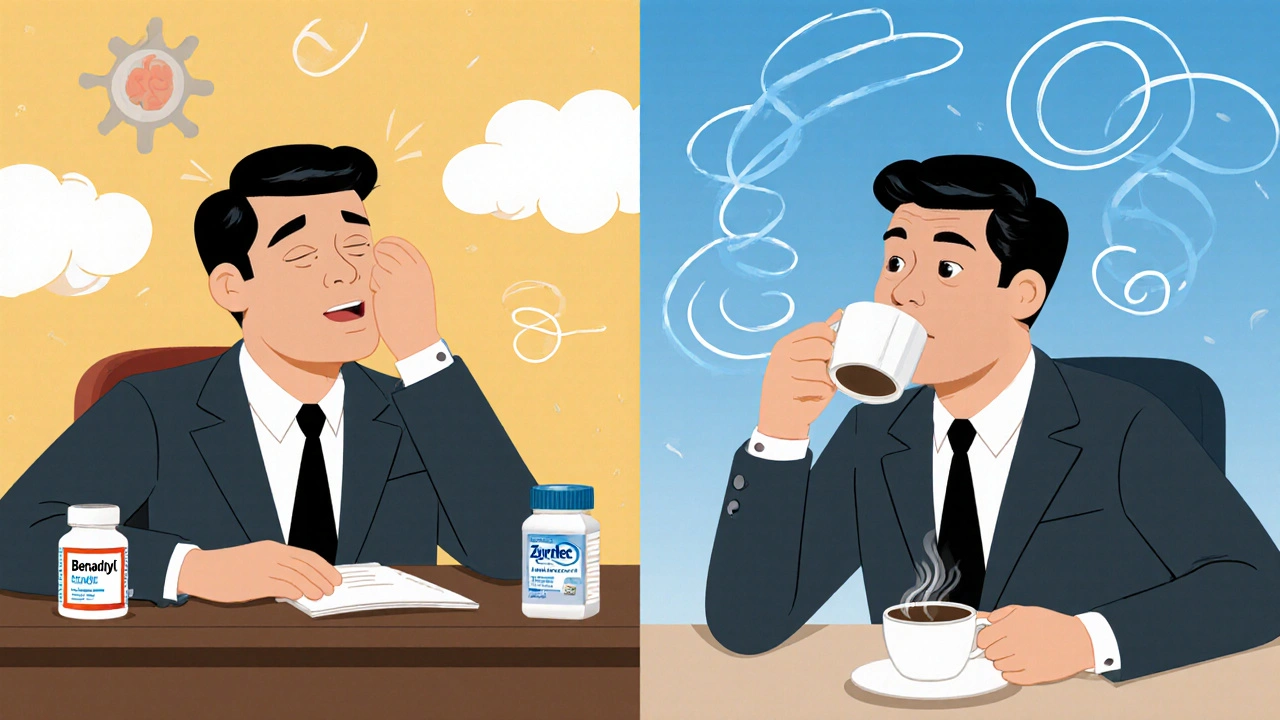Zyrtec: What It Is, How It Works, and What You Need to Know About Allergy Relief
When you’re sneezing, itching, or fighting that constant runny nose, Zyrtec, a brand name for the antihistamine cetirizine, used to treat allergy symptoms like hay fever and hives. Also known as cetirizine, it’s one of the most widely used over-the-counter allergy meds in the U.S. Unlike older antihistamines that made people drowsy, Zyrtec works hard to block histamine without knocking you out—most of the time. But it’s not magic. It doesn’t cure allergies. It just quietens your body’s overreaction to pollen, dust, or pet dander.
Zyrtec is part of a bigger group called second-generation antihistamines, which includes Claritin and Allegra. These are designed to be more targeted than first-gen drugs like Benadryl. That means fewer side effects like dry mouth or blurred vision—but not zero. Some people still feel tired. Others get headaches or a dry throat. If you’re on other meds—like antidepressants or painkillers—Zyrtec can interact. It’s not dangerous for most, but it’s worth checking with your doctor if you’re taking more than one pill a day.
What’s interesting is how Zyrtec fits into the bigger picture of medication safety. Many of the posts here talk about how drugs affect your body over time, how side effects can hide as new symptoms, and how to tell if what you’re feeling is the disease or the drug. Zyrtec is no different. If you’ve been taking it for months and suddenly feel more tired than usual, is it the allergies getting worse—or is your body reacting to the med itself? That’s the kind of question these guides help you answer.
And it’s not just about Zyrtec alone. People often mix it with other remedies—like nasal sprays, decongestants, or even herbal supplements like ginkgo biloba. That’s where things get tricky. One post here warns about ginkgo increasing bleeding risk when taken with blood thinners. Another talks about how evening primrose oil can affect seizure risk with antipsychotics. The same logic applies to Zyrtec: combining it with other meds or supplements without knowing the risks can backfire. You’re not just treating a sneeze—you’re managing a system.
There’s also the cost angle. Zyrtec is available as a generic—cetirizine—and that’s often half the price. But not all generics are created equal. One of the posts dives into single-source vs. multi-source drugs, explaining how pricing, manufacturing, and insurance can change what you pay at the pharmacy. You might think all cetirizine is the same, but sometimes the filler ingredients or how it’s absorbed can make a difference in how you feel.
And if you’re older, or managing multiple conditions, Zyrtec might be one of many pills you’re taking. That’s where deprescribing comes in. If you’ve been on it for years just because you always had allergies, maybe it’s time to ask: do you still need it? One guide shows how to safely reduce unnecessary meds—especially for older adults on five or more pills. Zyrtec might be harmless, but if your allergies are under control, why keep taking it?
What you’ll find below isn’t just a list of articles. It’s a toolkit. You’ll read about how to spot drug side effects, how to talk to your doctor about reducing meds, how to avoid dangerous interactions, and how lifestyle changes can reduce your reliance on pills altogether. Zyrtec might be the reason you’re here, but the real value is in understanding how all your meds fit together—and how to take control before they take control of you.
Antihistamines: First-Generation vs. Second-Generation Compared

Learn the key differences between first- and second-generation antihistamines - from how they work and their side effects to which one is better for daily use, sleep, or sudden allergies.
- November 20 2025
- Tony Newman
- 11 Comments
